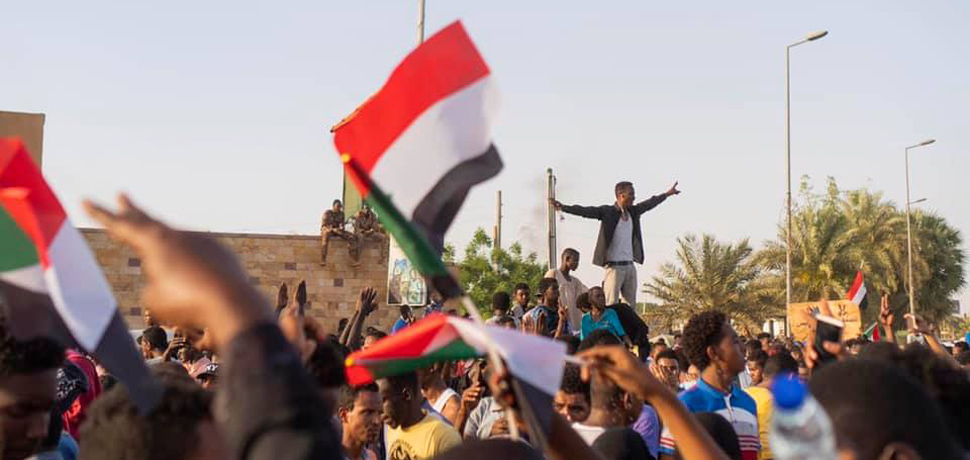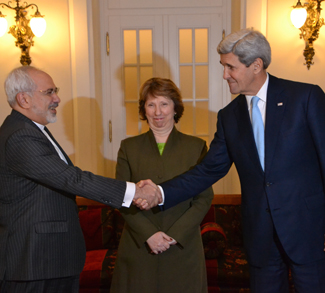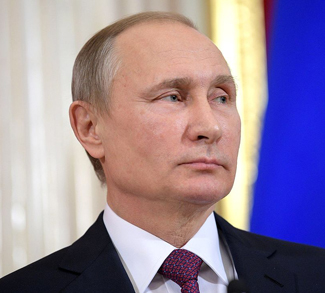If this were only pre-2010, there would be a lot more jubilation in the air. A lot more talk about ‘people power,’ ‘self-determination,’ ‘watershed moments,’ and the ‘irrepressibility of the human spirit.’ Omar al-Bashir’s three-decade rule of Sudan is over – decades full of oppression, starvation and a lethargic, but unyielding, genocide in Darfur – and yet for anyone testing the winds of international sentiment, the overwhelming feeling has been a kind of exhausted fear. A popular uprising against an unpopular leader – of dubious legitimacy – ought to catch the throat, if only a little. The yearning is all-inclusive, the courage is rare and wishful; and so the people on the streets should become instantly cosmopolitan, and every witness a participant in their mind – “Ich bin ein Sudanesischen.”
The change here has nothing to do with Sudan at all. Al-Bashir came to power in 1989 when, as a brigadier in the Sudanese Army, he orchestrated a military rebellion against the democratically elected Prime Minister Sadiq al-Mahdi. Al-Mahdi was widely unpopular at the time, but the act of heresy that pushed al-Bashir and his mutineers over the edge was the opening of peace negotiations with southern rebel groups. The new military regime banned all political organizations, purged the army, shut down independent newspapers, imprisoned opposition leaders, and significantly – after allying itself with Hassan al-Turabi – began implementing a form of Sharia Law so repressive that Osama Bin Laden migrated there for safe haven after Saudi Arabia could no longer tolerate his fundamentalism.
But it was with those southern rebels that al-Bashir crossed a line of, at least symbolic, importance. The epicentre of the crackdown naturally became the untapped oil fields of Darfur, where al-Bashir sold off the excavation rights to newly seized land so quickly that the state-owned Chinese National Petroleum Corporation (CNPC) literally began following the violence, so that it could begin construction of the necessary mining infrastructure without delay. This hasty sale of national resources might seem a little reckless, but it allowed the government in Khartoum to dramatically increase its imports of arms. As the conflict thundered forward, and the world became increasingly outraged by the atrocities on the ground, Sudan managed nonetheless – through leveraging access to its oil fields – to increase its military purchases 13,700 percent from 2001 to 2006. And also, when desirable, use the civil infrastructure being developed in its wake as a launch pad for further incursions.
Omar al-Bashir’s decision for war with southern separatists resulted in the deaths of 400,000 people, the forced displacement of three million, the collapse of diplomatic relations with neighbouring countries who were forced to deal with the refugee flows, and almost the entire Darfur region in need of urgent humanitarian assistance. This wasn’t a conventional war with an achievable military aim (the pacification of rebel groups); this was a genocide. The Sudanese were open in their objectives – the cleansing of the non-Arab population from Darfur. Language like this comes with significant legal obligations, and so the international community are often hesitant to apply such labels or talk about the need for intervention. Yet watching Darfur, few people were under any allusions as to what they were seeing.
In 2004, American Secretary of State Colin Powell, testified before the United States Senate Foreign Relations Committee that “genocide has been committed in Darfur.” In 2005, the British Parliament announced that “if the responsibility to protect means anything, it ought to mean something in Darfur.” And Kofi Annan saw symmetries in the violence with the most scarring moment in modern humanitarian history: “we had learnt nothing from Rwanda.” But Al-Bashir had bet everything on the unwillingness of those concerned governments to actually risk anything on the ground, especially if he could make a defence – no matter how tenuous – in the same language in which the accusations were being made – human rights, independence and international law.
The brief momentum of history was at his back, with Algerian President, and then President of the Organisation of African Unity (OAU), Abdelaziz Bouteflika, championing the absolute right of non-interference in the affairs of other states as “our final defence against the rules of an unjust world” in 1999. And then Nelsen Mandela announcing in 2000 that the protective mandate and intervention in Kosovo set a precedent that was “more dangerous to world peace than anything that was currently happening in Africa.” Omar al-Bashir had his battlelines, and so quickly began taunting the world with its own principles of justice: “we will not accept colonial forces coming into the country.” United Nations sanctions condemning Sudan came and went, and talk of the need for a military intervention was never short of those willing to champion it, and yet even when a peacekeeping mission was authorized, no member state was willing to back-up their words with actual material support (12,000 to 20,000 properly equipped troops).
And inexplicably, the Sudanese attempt to twist international law and best moral practice worked, with the United Nations – even after authorising an intervention – hinging everything on permission and support from the government in Khartoum, with Security Council resolution 1706 seeking “the consent of the Government of National Unity.” Having successfully called the international community’s bluff, al-Bashir got back to his killing, observed at every step, but almost entirely unchecked. In March 2009, the International Criminal Court (ICC), made al-Bashir the first sitting president ever to be indicted under their jurisdiction. The charge sheet detailed a guided campaign of rape, mass killings and forced expulsions; in other words, genocide, crimes against humanity, and ethnic cleansing. This was, of course, tokenistic. A man unwilling to stop a mass atrocity under foreign pressure is unlikely to then suddenly accept the supremacy of international law and wilfully hand himself over for prosecution.
And yet patrons of the International Criminal Court are still unlikely to have their moment of satisfaction. Al-Bashir was removed – reluctantly – by his own military, only after months of street protests showed no signs of falling away. Surrounded by Sudanese flags, Defence Minister Ahmed Awad Ibn Auf, made the announcement on state television, while also crushing any hopes of a democratic handover. Instead, the military will rule for the next two years, with no transition plan in place.
Most insightful of all has been the kid-gloved treatment of the disposed dictator. Al-Bashir is under house arrest – an unbelievably luxurious type of confinement (completely unworthy of the name ‘imprisonment’ based on the riches of the property in question) – and the bloodlessness of the coup likely speaks to a negotiated retirement, rather than an actual arrest and punishment. And on that question of punishment, no sooner was the overthrow of Al-Bashir’s thirty-year rule announced than the defiance of the International Criminal Court’s jurisdiction also continued. The seventy-five-year-old ‘prisoner’ will face court in Khartoum rather than The Hague. Not necessarily a problem in itself, but the chances of achieving judicial independence while under military rule is still in effect next to zero.
So with the constitution in tatters, and the revolution stolen, it is back to those people on the streets, and a test of their conviction. The protests started – just as those in 2010 during the Arab Spring – in response to endemic levels of corruption, poor management and economic stagnation. How willing are protestors going to be to risk it all again for the principles behind, and not the material of, their original grievances? The Arab Spring laced the world with hope, as they watched a once politically comatose region shaking itself awake. Soon enough that hope was replaced by fear, as those champions of democracy showed themselves instead to be theocrats in their own right, or alternatively unable to gather the same broad support against their newly emerging enemies.
Omar al-Bashir came to power in an act of rebellion against a peace accord with southern rebels. With his own limitations forced back upon him, in 2011 al-Bashir oversaw the division of his country with the formal independence of the Republic of South Sudan. The absence of principles here matters – if for nothing else than to show the malleability of once held ‘best intentions.’ There is no shortage of countries who, once willing to help al-Bashir defy his international arrest warrant, would likely now offer him – and his personal wealth – asylum if his prosecution ever becomes a little too authentic. In the meantime, the Sudanese people have likely just replaced one tyrant with another.
The views expressed in this article are those of the authors alone and do not necessarily reflect those of Geopoliticalmonitor.com or any institutions with which the authors are associated.




